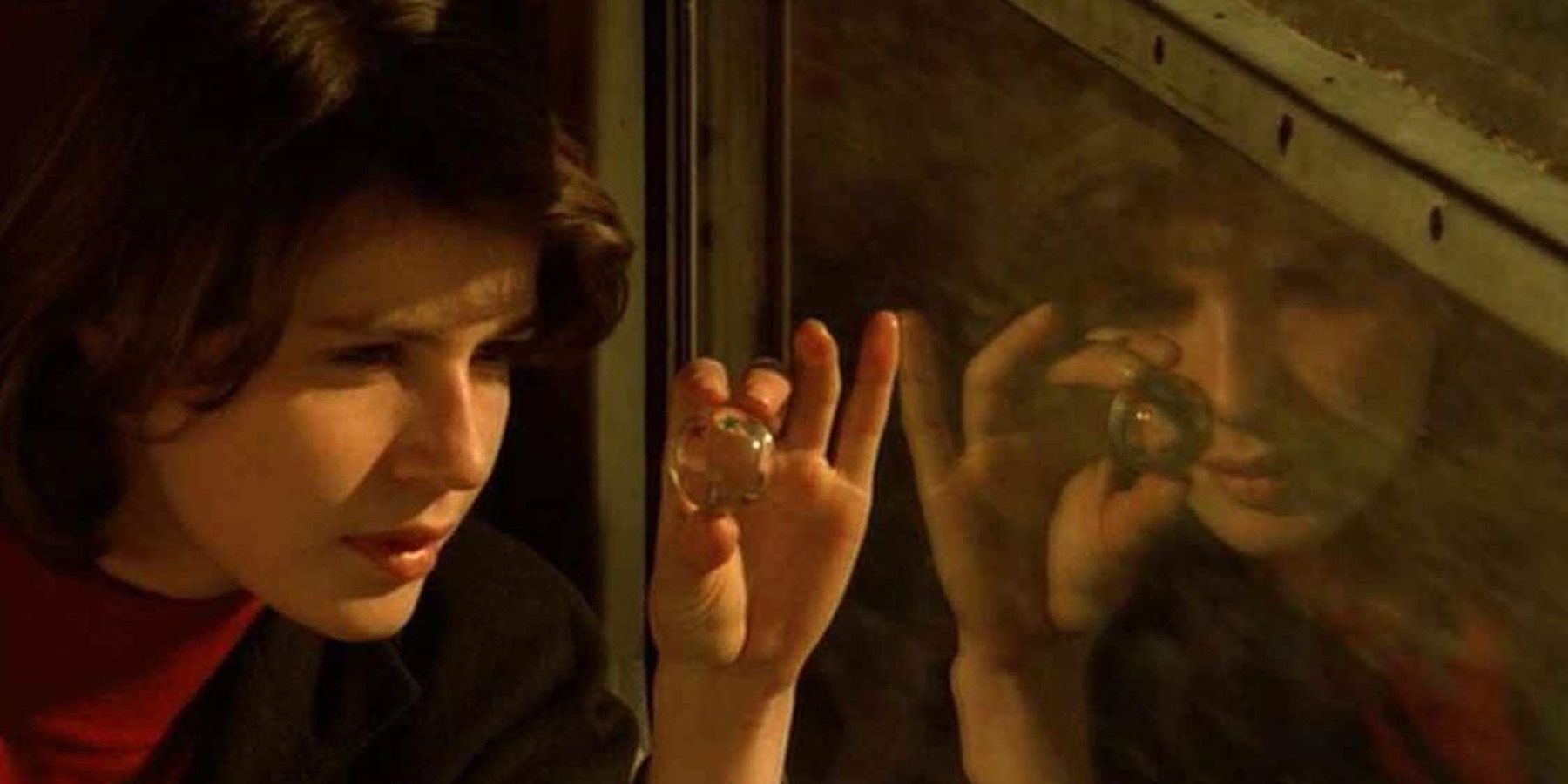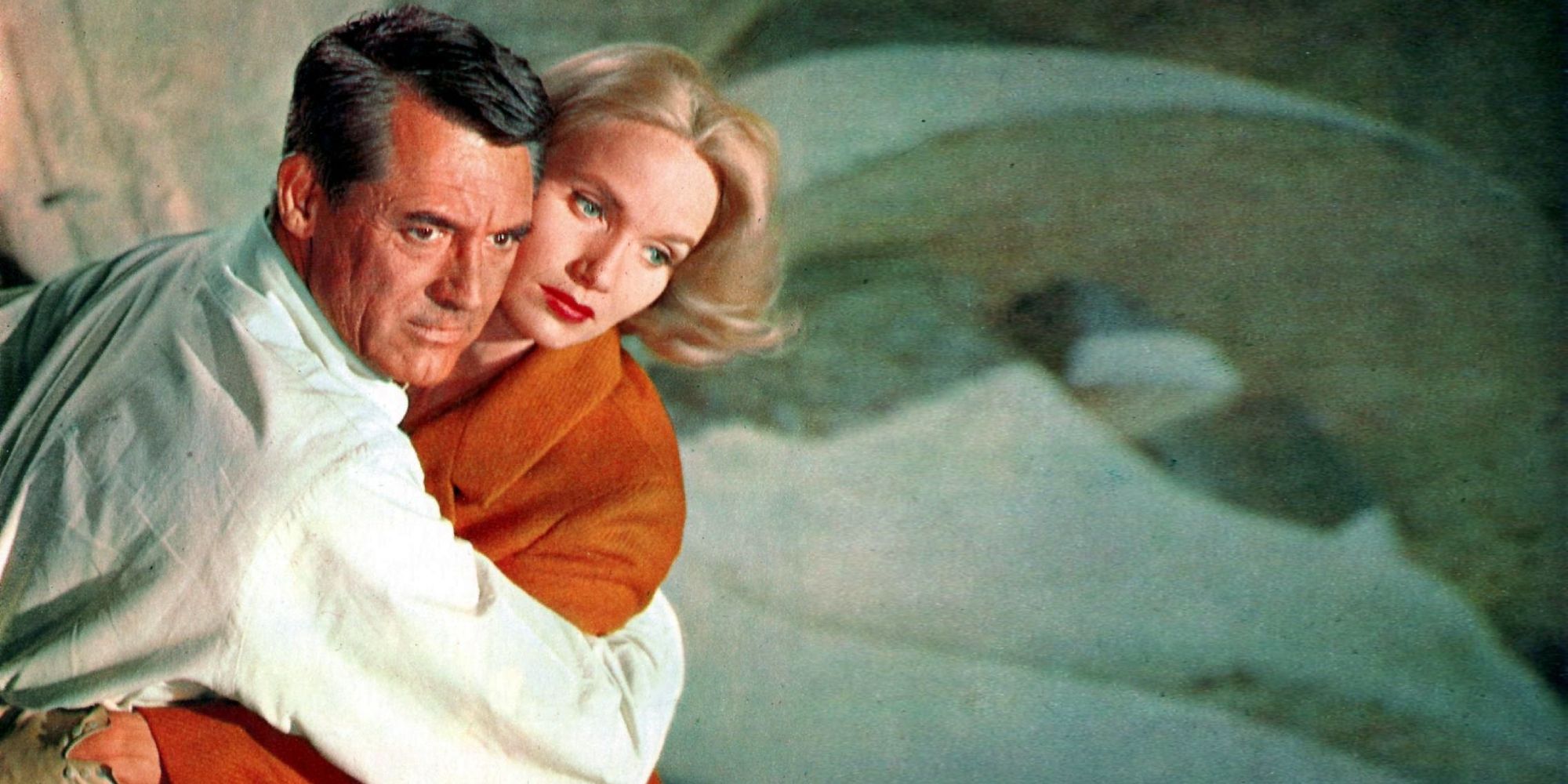Who among us has ever had the feeling that we’re not alone in the universe, that somewhere there’s another version of ourselves living an entirely different existence from our own? Who knows: they might even be living the version of our lives we wish we were leading. Few films have captured this sensation as profoundly as Krzysztof Kieślowski‘s The Double Life of Véronique, which interrogates this in both literal and metaphorical terms. In following the parallel lives of two women who might actually be alternate versions of the same woman, Kieślowski examines the role chance plays in our daily lives, and how little control we have over our own fates.
‘The Double Life of Véronique’ Is a Story of Doubles
Irène Jacob stars as both Weronika, a Polish singer who has just joined a local choir, and Véronique, a music teacher living in France. While walking through a town square in Kraków, Weronika catches Véronique taking photos and boarding a bus. During her next performance, Weronika dies suddenly, and Véronique, back in France, decides to quit singing in her own choir. She begins a romance with Alexandre Fabbri (Phillippe Volter), a marionette puppeteer who’s writing a children’s book about two women born on the same day who share a psychic connection, despite being in different cities. When Véronique shows Alexandre the photos she took while on vacation in Kraków, he spots one of Weronika and mistakes it for her, even though Véronique knows that it can’t be.
Born in Poland in 1941, Kieślowski directed numerous features, shorts, documentaries, and television series before his untimely death in 1994. He’s perhaps best remembered for two seismic works: Dekalog, which came right before The Double Life of Véronique, and the Three Colors Trilogy (Blue, White, and Red), which came right after. Consisting of ten one-hour segments that originally aired on Polish television, Dekalog chronicles the lives of various people living in an apartment complex, loosely taking its inspiration from the Ten Commandments. Composed of three feature-length films, the Three Colors Trilogy features interconnected stories of love and loss, examining liberty (Blue), equality (White), and fraternity (Red), which symbolically represent the three colors of the French flag.

Related
10 Great Movies Recommended by Julie Delpy
The ‘Before Sunrise’ actress has exquisite taste in movies.
If there was a common theme throughout Kieślowski’s work, it was a fascination with the random occurrences of life, and how we are all interconnected in ways we can’t always understand. The characters in Dekalog and Three Colors weave in and out of each other’s lives, affecting the paths they take in ways both big and small. Such is the case with The Double Life of Véronique, in which a chance encounter between two women leads to the death of one and life-altering decisions by the other. How did this happen? Why did this happen? Kieślowski gives us no clear answers, just as it is in life, which is so random as to be almost comic (or tragic, depending on how you look at it).
‘The Double Life of Véronique’ Is a Visual Masterpiece About the Interconnectedness of Life
Throughout his filmmaking career, Kieślowski was less concerned with plot and more interested in creating a mood through visuals and music. That is not to say that nothing happens in The Double Life of Véronique, but rather that it derives its effect from how it makes us feel while watching it, instead of wowing us with how its story unfolds. The cinematography by Sławomir Idziak creates a dreamlike reality with color, light, lenses, and camera angles, bathing Jacob in flashes of green and red. The score by Zbigniew Preisner is equally expressionistic, presenting the story in almost operatic terms.
Are Weronique and Véronique the same woman? They share many similarities aside from their looks: both work in music, both experience difficulties in romantic relationships, and both believe that someone else is guiding their fate. The world is filled with so many unknowable qualities that it is at times easier to believe there is something else out there determining how our lives will turn out, things over which we have no control. After completing his Three Colors Trilogy, Kieślowski announced his retirement from filmmaking, and died just two years later at the age of 54. Like his films, his sudden death was tragic, ironic, and unexpected. Add in funny and beautiful, and you’ve got something almost resembling life.
The Double Life of Véronique is available to stream on The Criterion Channel in the U.S.
Source link

